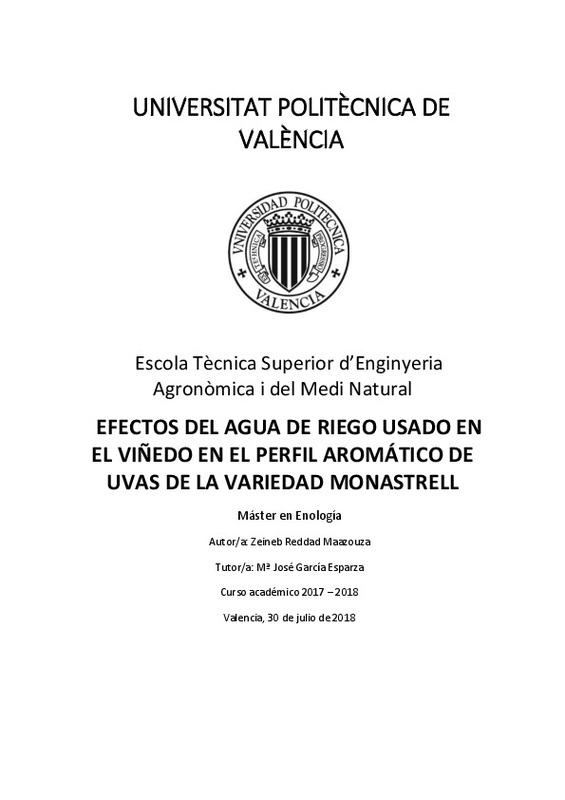JavaScript is disabled for your browser. Some features of this site may not work without it.
Buscar en RiuNet
Listar
Mi cuenta
Estadísticas
Ayuda RiuNet
Admin. UPV
Efectos del agua de riego usado en el viñedo en el perfil aromático de uvas de la variedad Monastrell
Mostrar el registro completo del ítem
Reddad Maazouza, Z. (2018). Efectos del agua de riego usado en el viñedo en el perfil aromático de uvas de la variedad Monastrell. Universitat Politècnica de València. http://hdl.handle.net/10251/109883
Por favor, use este identificador para citar o enlazar este ítem: http://hdl.handle.net/10251/109883
Ficheros en el ítem
Metadatos del ítem
| Título: | Efectos del agua de riego usado en el viñedo en el perfil aromático de uvas de la variedad Monastrell | |||
| Autor: | Reddad Maazouza, Zeineb | |||
| Director(es): | ||||
| Entidad UPV: |
|
|||
| Fecha acto/lectura: |
|
|||
| Resumen: |
[ES] El cambio climático que se observa con el paso de los años, plantea restricciones en la
utilización de agua y obliga al desarrollo de nuevas formas y técnicas de utilización de los
recursos. Los retos más inminentes ...[+]
[EN] The climate change that is observed with the passage of the years, raises restrictions on the use of water and requires the development of new forms and techniques of resource utilization. The most imminent challenges ...[+]
|
|||
| Palabras clave: |
|
|||
| Derechos de uso: | Reserva de todos los derechos | |||
| Editorial: |
|
|||
| Titulación: |
|
|||
| Tipo: |
|
recommendations
Este ítem aparece en la(s) siguiente(s) colección(ones)
-
ETSIAMN - Trabajos académicos [3541]
Escuela Técnica Superior de Ingeniería Agronómica y del Medio Natural







